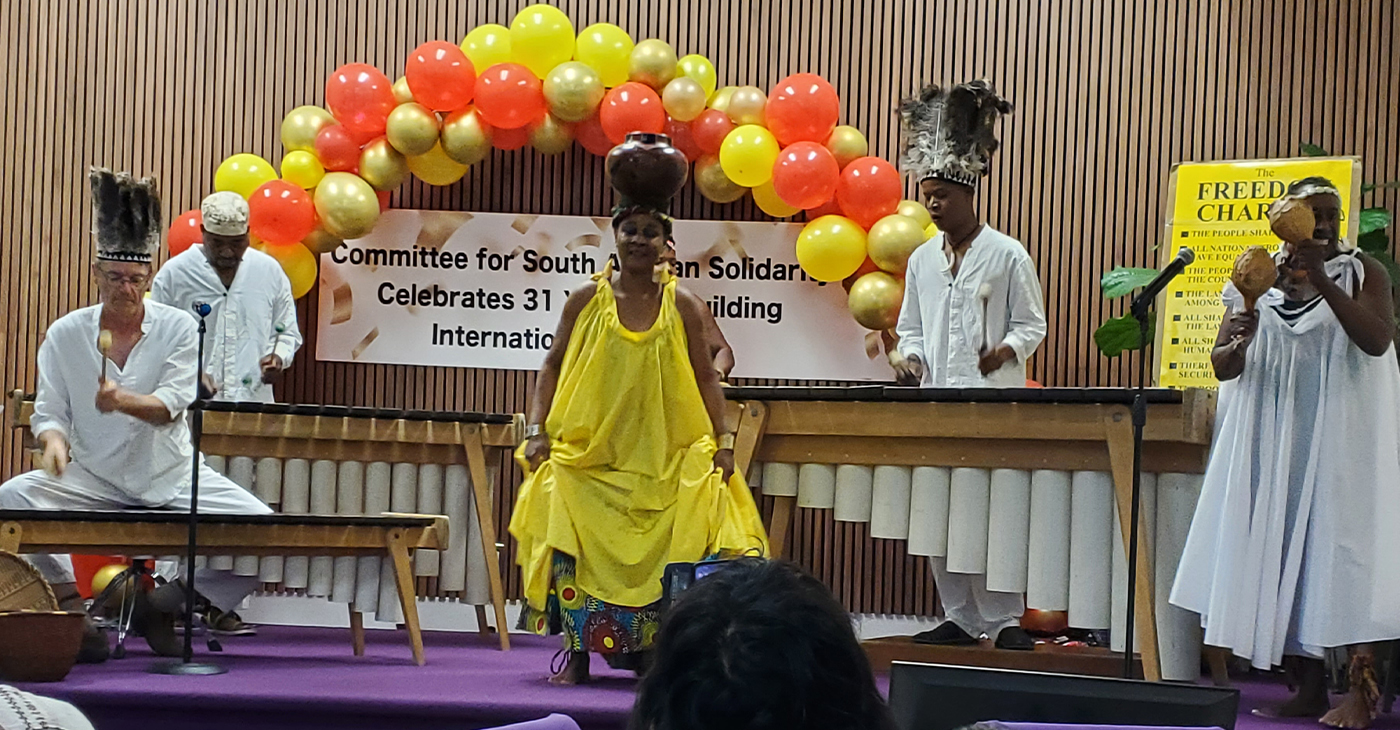World
Jamaica Woman Brings Attention to Rapes Targeting Lesbians

In this March 24, 2015 photo, gay rights activist Angeline Jackson, 24, speaks with a colleague in Kingston, Jamaica. Jackson, a victim of a targeted sexual assault when she was 19, now directs the only registered lesbian and bisexual women’s organization in Jamaica and is determined to help others recover from sexual crimes targeting female homosexuals, including so-called corrective rapes intended to force them into becoming heterosexual or punish them for not fitting societal norms. (AP Photo/David McFadden)
DAVID McFADDEN, Associated Press
KINGSTON, Jamaica (AP) — When Angeline Jackson and a friend were ambushed at gunpoint and sexually assaulted on a wooded trail outside the Jamaican capital, police initially seemed less concerned about the attack than the fact she is a lesbian.
“The first policewoman I spoke to told me I should leave this lifestyle and go back to church,” Jackson recalled of the 2009 attack, shaking her head in frustration.
It is an attitude all too common on the island, where gay rights activists say homosexuals suffer pervasive discrimination and occasional attacks. Activists say some LGBT people have even been the victims of brutal sexual assaults intended to force them into becoming heterosexual or punish them for not fitting societal norms.
Jackson says she was targeted by a small group of anti-gay rapists who posed as lesbians on an Internet chatroom and lured the two women to the remote footpath. The response to her attack inspired Jackson to take action. Now, the 25-year-old woman directs Jamaica’s only registered organization for lesbians and bisexual women.
Jamaica has long had a reputation for intolerance of male homosexuality, with many on the island seeing it as a moral perversion imported from abroad. But the stigma against Jamaican homosexual women and the underreported crime of targeted sexual assault of lesbians is receiving growing attention.
Last year, Vice President Joe Biden mentioned Jamaica’s struggle with “corrective rape for lesbian women” while speaking about global gay rights. The phrase emerged years ago in South Africa where attacks targeting lesbians have occurred again and again in predominantly poor neighborhoods.
Earlier this month, President Barack Obama singled out Jackson’s advocacy during his 24-hour visit to Jamaica, telling a crowd that she courageously chose to speak out even though “as a woman and as a lesbian, justice and society were not always on her side.”
With a population of less than 3 million, few incidents of sexual attacks are reported to LGBT activists. The island’s main gay rights group, J-FLAG, has documented several cases over the years and Jackson’s burgeoning organization has heard of about a dozen.
The scope of the problem is impossible to gauge with accuracy in Jamaica. There’s no clear definition of what constitutes a hate crime and police do not specifically record threats or sexual attacks targeting lesbian, gay, bisexual and transgender people.
Activists say Jamaican homosexuals targeted because of their sexual orientation prefer not to formally report attacks or threats, fearful of being stigmatized or blamed. Human Rights Watch last year reported it knew of 10 cases of sexual assault in Jamaica targeting eight lesbians, one transgender woman and one gay man, including cases of rape at knife or gunpoint.
“It is clear from victims’ testimonies that anti-LGBT animus is a factor,” said Graeme Reid, LGBT program director for the New York-based group.
Even when attacks are reported, prosecution is difficult in Jamaica’s inefficient, overwhelmed criminal justice system. The main alleged assailant in Jackson’s case, in fact, was acquitted in 2011, though he previously was accused of a number of rapes and sexual assaults.
Police Superintendent Enid Ross-Stewart, head of the island’s sex crimes unit, said investigators have never received a report of someone targeted because of their homosexuality and she believes that “all the people who are raped come forth.”
Sometimes, female victims of sexual violence wait to leave Jamaica before revealing their experiences.
Reggae singer Diana King, who in 2012 became the first Jamaican musical artist to publicly come out as gay, recently tweeted from her Florida home that when she was a 13-year-old on the island, she was “gang raped for looking at a girl too long.” In her 2010 memoir, Brooklyn-based writer Staceyann Chin writes she was ostracized after coming out as a lesbian on a Kingston college campus, and one day was herded into a bathroom by several male students, who sexually assaulted her while telling her that women were created for men to enjoy.
Some Jamaican lesbians have sought asylum abroad. In 2008, Simone Edwards survived an attack by two gunmen who hissed the anti-gay epithet “sodomite” at her as she lay bleeding on a street from two bullets. She later received asylum in the Netherlands and her story was told in the 2013 documentary “The Abominable Crime.”
“Before the gunshots, guys would always call me sodomite girl, lesbian girl. They would come up to me and say, ‘You just need one good night of sex with a man,'” Edwards said by phone from The Hague.
The Associated Press doesn’t normally reveal the names of sexual assault victims, but the women in this story have come out publicly to discuss their ordeals.
Although there are growing pockets of LGBT tolerance in Jamaica, anti-gay attitudes continue to be fueled by some church leaders and dancehall reggae performers who disparage homosexuality. And as in other English-speaking Caribbean nations, sex between men, in fact, is unlawful in Jamaica, with violators subject to 10 years imprisonment and hard labor, although the anti-sodomy law is rarely enforced.
Jackson is gaining recognition here and abroad for her work with her group, Quality of Citizenship Jamaica. But so far, few LGBT women are willing to risk exposure.
In the northern city of Montego Bay, a lesbian told AP she wasn’t ready to pursue justice for a 2011 attack she described as a “corrective rape” by a friend’s brother.
He cornered her, she recalled, remembering his Jamaican patois: “You think me no know who you be? You go on like you’re a man. Me see how you dress and me know who you be,” she said.
The woman, who asked to remain anonymous for fear of retaliation by her attacker and banishment by relatives, conceded that perhaps she never will report the crime.
“I once thought if I had a gun I’d kill the man who forced himself on me,” said the woman in her late 20s, her voice weighted with sadness. “But I’m doing my best to just move on.”
___
AP writer Lynsey Chutel contributed to this story from Johannesburg, South Africa.
David McFadden on Twitter: http://twitter.com/dmcfadd
Copyright 2015 The Associated Press. All rights reserved. This material may not be published, broadcast, rewritten or redistributed.
Activism
South African Solidarity Committee Hosts 31st Annual Celebration
“We’re all together for each other celebrating 31 years of building international solidarity between the people of the United States and South Africa toward the implementation of the 1955 Freedom Charter and 2030 Sustainable Development Goals,” said COSAS Operations Manager Nicole Richards.Located in Berkeley, COSAS is dedicated to the continuing struggle by the people of South Africa’s need for independence.

By Carla Thomas
The Committee of South African Solidarity (COSAS) celebrated its 31st anniversary on Saturday, Oct. 26 at the East Bay Church of Religious Science in Oakland.
Themed “Ubuntu,” a word in Zulu and Xhosa, which means “I am because we are,” the event brought together supporters and community members.
“We’re all together for each other celebrating 31 years of building international solidarity between the people of the United States and South Africa toward the implementation of the 1955 Freedom Charter and 2030 Sustainable Development Goals,” said COSAS Operations Manager Nicole Richards.
Located in Berkeley, COSAS is dedicated to the continuing struggle by the people of South Africa’s need for independence.
A soulful meal was prepared by Chef Rene Johnson and Blackberry Soul Catering along with live entertainment and speakers.
COSAS is an all-volunteer, private membership organization, made up of South Africans, Africans, students, professionals, clergy and others committed to building solidarity between the working people of the U.S. and the South African people still struggling for economic and political freedom.
Formed in 1993, the organization promotes the “real nature” of the changes and struggles taking place in South Africa and the African continent, according to Richards.
“COSAS counters ‘disinformation’ and ‘misinformation’ in the U.S. and Western mainstream media that creates division and distrust,” Richards said. “We produce the South African Beacon and organize and transport solidarity shipments of school supplies to South African grade schools requesting assistance,” Richards said.
According to organizers, COSAS is completely run by volunteers, free from the corporate and government agendas that continue to keep South Africa dependent on the West.
“We rely on the support of concerned individuals. Call us today about how you can get involved by sorting and packing supplies, donating office equipment, and supporting special events,” said Richards.
Earlier in the year, COSAS hosted its World Affairs film showing at Downs Memorial United Methodist Church. The screening featured a short film, “Feeding a Crisis: Africa’s Manufactured Hunger Pandemic,” exploring the hunger challenges African countries face and approaches to resolving the issues.
Contact the Committee for South African Solidarity, 1837 Alcatraz Ave., Berkeley, CA, 510-251-0998 for volunteer opportunities and event information.
Community
How Mobihealth Drives a Telemedicine Revolution in Africa
As a child growing up in northern Nigeria, Dr. Funmi Adewara experienced a severe hand injury that required multiple surgeries and frequent hospital visits. These visits exposed her to the harsh realities of the country’s healthcare system. “I remember sitting in overcrowded waiting rooms, watching doctors stretched thin, unable to meet the needs of so many patients,” Adewara recalls. This formative experience ignited her passion for transforming healthcare in Africa.

By Ifeanyi Abraham
CNN
As a child growing up in northern Nigeria, Dr. Funmi Adewara experienced a severe hand injury that required multiple surgeries and frequent hospital visits.
These visits exposed her to the harsh realities of the country’s healthcare system. “I remember sitting in overcrowded waiting rooms, watching doctors stretched thin, unable to meet the needs of so many patients,” Adewara recalls.
This formative experience ignited her passion for transforming healthcare in Africa.
Growing up with a mother who worked as a nurse, Adewara’s understanding of healthcare challenges deepened through her mother’s stories.
“I knew early on that healthcare wasn’t a privilege — it was a necessity, and I wanted to be part of changing the system,” she explains.
After training as a physician, Adewara worked for 15 years in the United Kingdom’s National Health Service before founding the telemedicine platform Mobihealth in 2017.
Since its launch, Mobihealth has impacted thousands of lives, connecting patients with doctors and healthcare professionals across Nigeria and beyond.
The platform has 20 integrated telehealth clinics that offer remote consultations, diagnostics, and access to specialist care via digital health tools. Located primarily in Nigeria, these clinics are accessible to patients through various subscription plans and are often financed through partnerships with global donor organizations and private donors.
In addition to the clinics, Mobihealth has partnerships with over 200 hospitals, labs, and pharmacies, Adewara says.
The company has earned global recognition, including a $1 million grant from the U.S. Trade and Development Agency in 2022. Adewara was also one of the World Bank’s seven 2020 Sustainable Development Goals & Her award winners, selected from over 2,400 entries worldwide.
Connecting Rural Patients
Across sub-Saharan Africa, millions struggle to access basic healthcare. According to the World Health Organization, the region bears 25% of the global disease burden but has only 3% of the world’s healthcare workers.
“In rural Africa, a trip to the nearest hospital can mean the difference between life and death,” says Adewara.
Mobihealth’s latest initiative offers healthcare for $1 a month for rural and underserved populations. It allows Africans in the diaspora — and global supporters — to sponsor essential services like doctor consultations, diagnostic tests, and access to telemedicine clinics.
The scheme is not solely based on donations; individuals can also subscribe to the service for themselves.
“Healthcare systems across Africa are under immense pressure,” Adewara explains. “Our initiative is a direct response, using technology to connect rural patients with doctors thousands of miles away.”
For Adewara, Mobihealth’s telemedicine platform is not a temporary fix; it represents the future of healthcare in Africa.
“This is about creating a resilient, sustainable and inclusive system, where people, no matter where they are, can access the care they need,” she says.
“Telemedicine brings doctors to people, wherever they may be. By integrating AI and remote monitoring, we are improving the speed and accuracy of care, saving lives in the process,” she adds.
A number of African companies provide telemedicine services, but researchers have pointed out that there are obstacles that could hinder the growth of telemedicine in the continent.
Rural areas can have an unreliable electricity supply and poor internet connectivity, and there is often a lack of government policies and funding around virtual healthcare.
“A Healthcare System for the Future”
Adewara envisions scaling her company’s model to reach millions more across Africa, particularly in countries like Ghana, Kenya, and Ivory Coast.
“Our work is just beginning,” she says. “We are building a healthcare system for the future — one that is resilient, inclusive and capable of meeting Africa’s growing population’s needs.”
However, partnerships are crucial to achieving this vision. “We can’t do this alone. Our collaborations with the African diaspora, hospitals, governments, and international organizations allow us to reach more people and ensure that healthcare is affordable, efficient and accessible,” Adewara adds.
Activism
Atty General Rob Bonta Joins Coalition Backing Pres. Biden’s Migrant Parole Program
“The Biden Administration’s CHNV Parole Program provides a safe pathway to apply for protection for Cuban, Haitian, Nicaraguan, or Venezuelan migrants fleeing violence and upheaval. We urge the court to uphold this program that creates orderly processes for people fleeing humanitarian crises to lawfully reach the United States,” said California Attorney General Rob Bonta. The federal government has exercised its authority under the Immigration and Nationality Act to parole migrants into the country for humanitarian purposes since the Eisenhower Administration.

By Bo Tefu, California Black Media
Attorney General Rob Bonta joined a multistate coalition of 18 attorneys general to write an amicus brief supporting President Joe Bidens’s Parole Program for migrants fleeing violence.
The multistate coalition will submit the brief to the Fifth Circuit Court of Appeals regarding the case Texas v. U.S. Department of Homeland Security. The brief endorses Biden’s Parole Program for Cubans, Haitians, Nicaraguans, and Venezuelans (CHNV Parole Program). The migrant parole program allows individuals from the four countries to apply for advance travel authorization. Migrants can be considered for temporary humanitarian parole of up to two years including employment authorization.
The coalition highlighted California’s interest in maintaining the federal government’s discretionary power granting migrants entry or allowing immigrants to stay on humanitarian grounds.
“In California, we believe that migrants escaping violence should be treated with compassion and dignity, and immigration parole programs are a crucial part of a just and secure immigration system,” said Bonta.
“The Biden Administration’s CHNV Parole Program provides a safe pathway to apply for protection for Cuban, Haitian, Nicaraguan, or Venezuelan migrants fleeing violence and upheaval. We urge the court to uphold this program that creates orderly processes for people fleeing humanitarian crises to lawfully reach the United States,” he said.
The federal government has exercised its authority under the Immigration and Nationality Act to parole migrants into the country for humanitarian purposes since the Eisenhower Administration.
The coalition argued that the lawsuit in Texas threatened to undermine the federal government’s authority to establish crucial programs that help migrants escape unstable circumstances in their home countries.
The coalition stated that parole provides safe, legal, and orderly pathways for people to seek protection in the United States.
However, opponents claim that parole pathways help increase crime and impose costs on states.
-

 Alameda County4 weeks ago
Alameda County4 weeks agoAlameda County District Attorney Pamela Price Announces $7.5 Million Settlement Agreement with Walmart
-

 Activism3 weeks ago
Activism3 weeks ago‘Jim Crow Was and Remains Real in Alameda County (and) It Is What We Are Challenging and Trying to Fix Every Day,’ Says D.A. Pamela Price
-

 Bay Area4 weeks ago
Bay Area4 weeks agoIn the City Attorney Race, Ryan Richardson Is Better for Oakland
-

 Activism3 weeks ago
Activism3 weeks agoOakland Post: Week of October 30 – November 5, 2024
-

 Alameda County3 weeks ago
Alameda County3 weeks agoD.A. Price Charges Coliseum Flea Market Vendors in Organized Retail Theft Case
-

 Activism3 weeks ago
Activism3 weeks ago‘Criminal Justice Reform Is the Signature Civil Rights Issue of Our Time,’ says D.A. Pamela Price
-

 Activism3 weeks ago
Activism3 weeks ago“Two things can be true at once.” An Afro-Latina Voter Weighs in on Identity and Politics
-

 Activism2 weeks ago
Activism2 weeks agoLIVE! — TOWN HALL ON RACISM AND ITS IMPACT — THURS. 11.14.24 5PM PST





















































